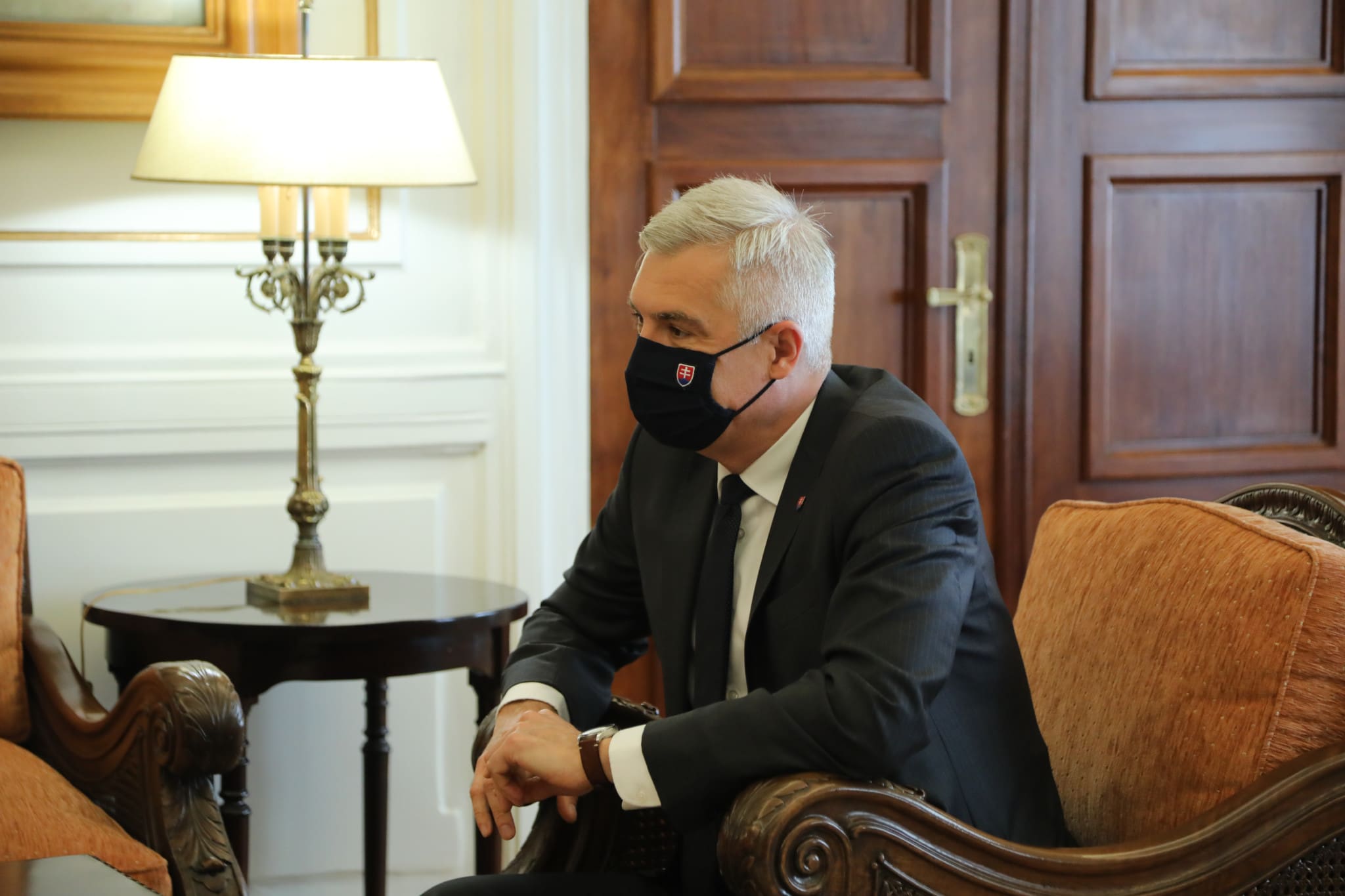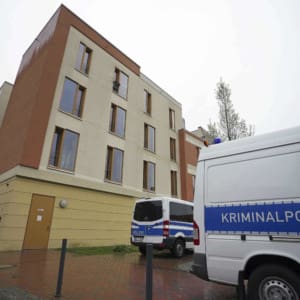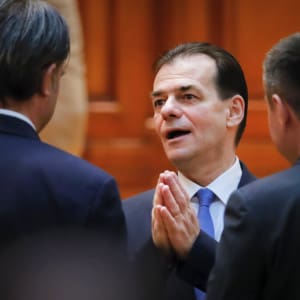Slovakian Foreign Secretary Ivan Korčok from the liberal Freedom and Solidarity (SaS) party has gone on Facebook to condemn the recent visit of Chairman of the Hungarian Parliament László Kövér to Slovakia. During his visit, Kövér unveiled a memorial for Hungarian victims of deportations who lost their citizenship after the Second World War. According to the so-called Benes Decrees, German and Hungarian citizens of Czechoslovakia were found collectively guilty for alleged cooperation with occupying powers and stripped of all their possessions, then either deported to neighboring countries, or to forced labor camps in current Czechia. It is estimated that over 76,000 Hungarians have been forced to leave their homes in inhumane circumstances.
Before his arrival, the Chairman of the Hungarian Parliament duly announced his intention to visit Slovakia through their embassy in Bratislava. However, during the event in Samorín, a settlement largely inhabited by ethnic Hungarians, he made some remarks that have angered the Slovak Foreign Secretary. In his speech, he reaffirmed the Hungarian government’s position that does not recognize the Benes Decrees, nor the principle of collective guilt. Kövér has also expressed his opinion that Hungarian victims of the deportations should receive an apology for the historic atrocity, and their descendants should be given due compensation. This would be a prerequisite for closure for the victims, he said.
This is, however, is not the way the left-wing Slovak Foreign Secretary sees the problem. According to his social media post, the issue of post-war settlements is a closed topic. In his view, the way that Hungarian politicians keep reopening this topic is not in line with the spirit of friendly bilateral relationships. Korčok has also found it objectionable that the second-highest Hungarian constitutional representative should come to his country to present his own historic perspective. He has called on Hungarian politicians to mind their words so that they do not disturb the reconciliation process between the two nations, and to treat Slovakia as an equal partner.
The question of the Benes Decrees and the forced deportations of civilians will remain a contentious issue between Slovaks, Czechs, Hungarians, and Germans, and a complete meeting of minds is practically impossible when it comes to this topic. On the other hand, it is disturbing to consider the staggering inconsistency in Korčok’s approach to national memory and national culture. Just below the quoted Facebook post is another post about the Roma holocaust, in which he states that “one should not forget about its horrors… Without such a historic memory, we would lose our capacity for self-reflection, which so important in these times. It is equally important to have research into this topic, since the prevention of the spread of hate and extremism and intolerance starts, above all, with education,” wrote Korcok.
The minister seems to be applying double standards when it comes to remembering historical traumas, and the criteria he is employing for deciding which ones to champion and which ones to deny are based on the current expectations of European mainstream progressive politics. Korcok, who is known for his irrefutable loyalties towards the Western liberal elites, seems confident in his assessment that supporting the memory culture around the deportation and murder of Romas will earn him respect among his ideological allies. At the same time, he feels even more emboldened in denying the right to remembrance and the right to learn about one’s past that he champions so earnestly, in the context of the Roma holocaust, to Hungarians. This confidence is clearly rooted in the current European political climate where any criticism of members of the Hungarian government is rewarded by approval from Brussels and political allies in the West. The ease by which Korcok can feel immune from any criticism for denying Hungarians the right to remember their victims of historic injustices comes from a similar European political attitudes that have caused both tragedies in the first place – that of the Roma as well as the Hungarians.
Korcok’s need to conform to liberal European political mood-swings was demonstrated best during the peak of the Slovakian Covid crisis. In the past few months, when hospitals were overwhelmed and bodies of the pandemic crisis were piled in refrigerated trucks outside mortuaries, Korcok rejected a shipment of the Russian Sputnik V vaccine on the basis of solidarity with Western powers, who have themselves suffered from an acute shortage, yet were reluctant to approve Chinese and Russian made serums for reasons that many suspect to be of a political nature. Korcok is now willing to risk a dispute with one of Slovakia’s neighbors only to virtue signal towards a Western left that is hostile to any initiatives of the conservative government of Viktor Orbán.
As Mózes Szabolcs, leader of the Slovakian party of ethnic Hungarians Összefogás, summed it up, “the Slovak foreign Secretary deems it disrespectful when someone sums up certain facts. Or could you unveil a memorial for the deportations without mentioning the deportations, or the injustices of WWII? And all this coming from an allegedly liberal minister. This is exactly the kind of liberalism that they demonstrate when it comes to minority issues. While on the level of words Korcok is a supporter of Hungarian-Slovak friendship, he instructed the minister justice… to join the legal challenge against Minority SafePack.”






